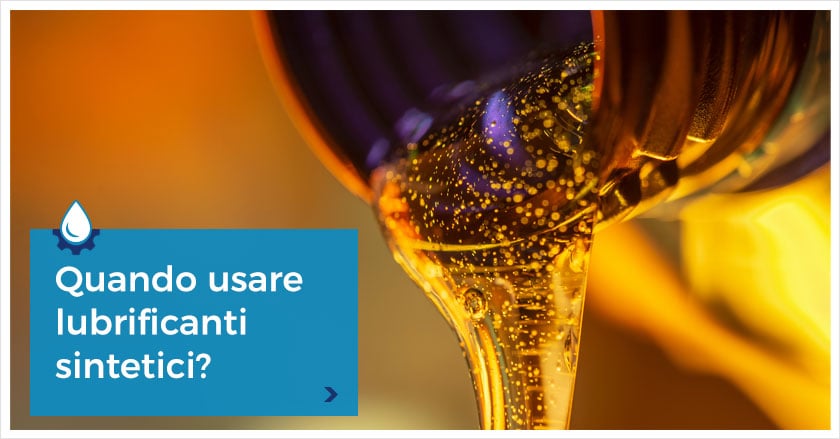
When to use synthetic lubricants?
All mechanical systems require constant lubrication in order to maintain high performance over time. Correct lubrication can be ensured by products of different types, which vary according to the mechanism and its functionality.
Each industrial sector has different needs, as does each product, depending on the functionality and characteristics, so it is important to use specific lubricants for your needs. Today, we are going to look at how and when to use a synthetic lubricant.
Lubricants are mainly divided into two categories:
- Mineral lubricants, obtained in the distillation column of crude oil processing
- Synthetic lubricants, derived from treatments carried out in the laboratory
The latter, compared to the mineral varieties, guarantee a lower volatility at the same viscosity, which means lower consumption in operation, with a higher viscosity index that allows them to be used in a broader temperature range.
But not only that, one of the fundamental characteristics of synthetic lubricants is their greater chemical stability at high temperatures, which results in a longer useful life.
Synthetic lubricant for high temperatures
Why is it preferable to use a lubricant that can withstand prolonged periods of operation at high temperatures?
Let's try to answer this question with some valid reasons:
- The upper operating temperature of the mechanical device in operation is not always certain since, unfortunately, it is not always possible to build a perfect "thermal history" of the mechanical component during the design phase, whilst exceptional conditions are often unpredictable
- The specific additives for high temperatures can significantly delay the initiation of secondary oxidation and keep the lubricating film active much longer
- The separation of the friction surfaces is optimal if the film is hydrodynamic and not dry and the additives help to improve its lubrication
- Mechanical wear from friction is limited, thanks to its more stable viscosity as the temperature varies
- Mineral lubricants evaporate more easily.
- There is no need to re-lubricate the friction surfaces - just think of a gearmotor of a window lifter in a car or a pneumatic cylinder of a press, designed to work for life without being lubricated a second time
- It is more performing at low temperatures, by virtue of its superior viscosity index which allows it to guarantee a low dynamic coefficient of friction even at low temperatures
- The cost/benefit ratio is often favourable because, if it is true that at the time of purchase, a synthetic lubricant costs more than a mineral one, it is also important to take into consideration the overall cost analysis obtained through an accurate assessment of all the benefits deriving from an improved and customised formulation for use at high temperatures
How to choose the right synthetic lubricant
Finding the solution at an industrial level that perfectly meets your needs, without neglecting any aspect, is honestly very difficult a priori since you need to know the manufacturing process to find the most suitable lubricant formulation.
This is why it is important to trust in a supplier able to create a custom synthetic lubricant, from the design studio to the realisation. A pre-packaged product responds to many generic (standard) activities but it is not necessarily suitable for the entire production cycle that takes place within your company.
The correct selection of the lubricant to be included in industrial devices is often underestimated or not thoroughly investigated in the design phase. But, as we have seen, it can contribute in a significant way to increase the performance of your devices or create crucial damage to your company.
To know how and when to use a synthetic lubricant and, above all, which one to choose, download our free guide!
Do you want to improve your knowledge on the fundamental aspects of lubrication?



